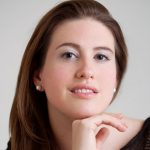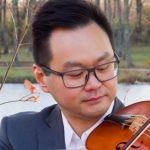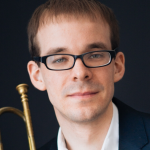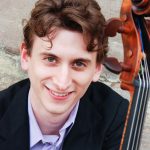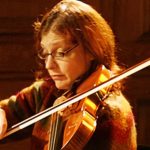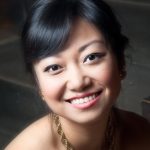This encore performance of Bach’s Cantata 51 reunites the Sebastians with beloved Dutch-American soprano Katharine Dain, recent winner of the 2021 Edison Award, for a program featuring trumpet soloist Steven Marquardt and strings, closing with the Sebastians’ signature rendition of Vivaldi’s Folia.
Join us on an exploration of Italian musical style and its impact on Germany and Austria. We begin in Rome, where Arcangelo Corelli pioneered a certain brand of virtuosic writing for violins and a signature variety of harmonic progression. At almost the same time, Biber’s dance suites from Mensa Sonora (“Sounding Table’) show a very different style of composition in Salzburg—Biber’s subtitle is “instrumental table-music with fresh-sounding violin sonorities,” basically meaning background music. These are concise suites of short dance movements, but as Biber promises, filled with unusual harmonies and rhythms.
Handel and Bach perhaps together exemplify the evolution of the Italian style in German-speaking lands. Handel actually spent time studying and composing in Italy, and though Bach never left Germany, he spent countless hours studying and playing Italian music. Handel has a reputation for the more fun-loving of the pair, but his cantata Notte placida e cheta shows a different side, more contemplative and beautiful, while the speaker reflects on a lost love, hoping that in sleep she might see her beloved once more. “I was happy for a moment,” she says.
By contrast, Bach’s Cantata 51 shows all the joy we might imagine in a sacred cantata, from its ebullient arpeggio opening to the fantastic closing Alleluia. Bach’s choice of a trumpet as a solo instrument and duet partner to the solo soprano gives the whole cantata a shiny coat of paint!
Program
Arcangelo Corelli (1653–1713)
Sonata in A major, op. 3, no. 12, from Sonate a tre (Rome, 1689)
Heinrich Ignaz Franz von Biber (1644–1704)
Pars III in A minor, C. 71 from Mensa Sonora (Salzburg, 1680)
Johann Sebastian Bach (1685–1750)
Jauchzet Gott in allen Landen, BWV 51 (Leipzig, 1730)
George Frideric Handel (1685–1759)
Notte placida e cheta, HWV 142 (Rome, 1707–8)
Georg Philipp Telemann (1681–1767)
Sonata for cello and basso continuo in D major, TWV 41:D6 (Hamburg, 1728/29)
Antonio Vivaldi (1678–1741)
Sonata "La Follia," op. 1, no. 12, RV 63, from Suonate da camera a 3 (Venice, 1705)
Performers
Safety and COVID-19
The safety of our performers, staff, and audience are of the utmost importance to us. As the COVID-19 pandemic continues to evolve, we will closely monitor local conditions as concerts date draw near. We reserve the right to require proof of vaccination, masking, and distance inside the concert hall. We will announce our safety procedures for each concert in advance of the performance date.
By purchasing a ticket and attending a concert, you acknowledge that despite all reasonable precautions, there are risks in attending live musical events and you agree to accept those risks yourself. You release the Sebastians (legally, Sebastian Chamber Players, Inc.) from any claims based on your attendance of one of our concerts. Your in-person concert ticket grants you access to the virtual concert experience—available shortly after the performance. If you have any questions or need assistance, we are always reachable at music@sebastians.org.


